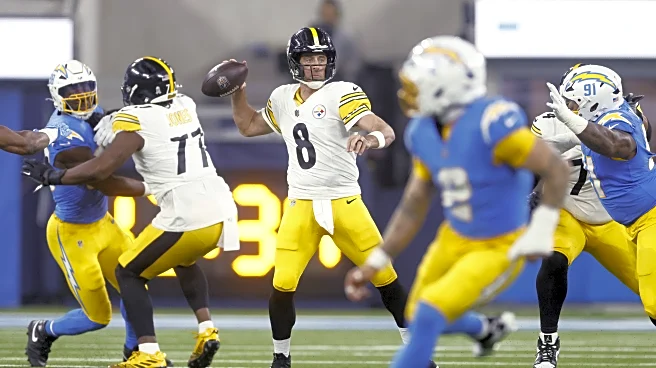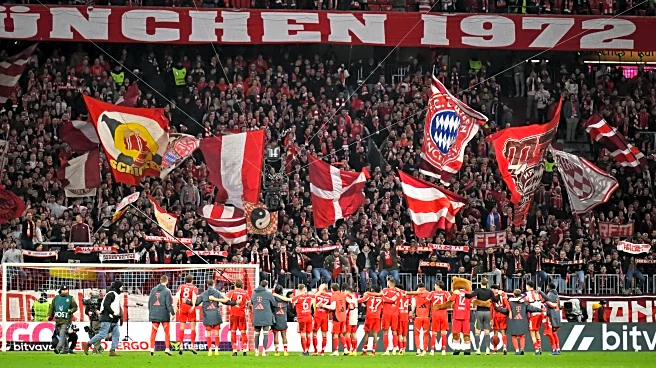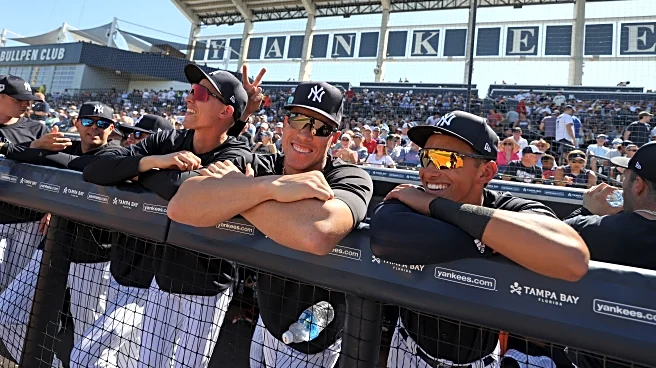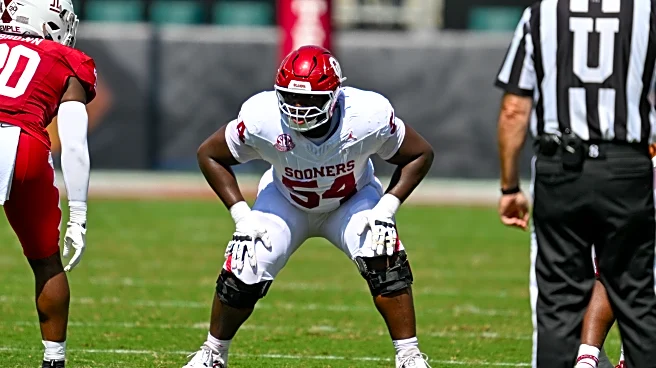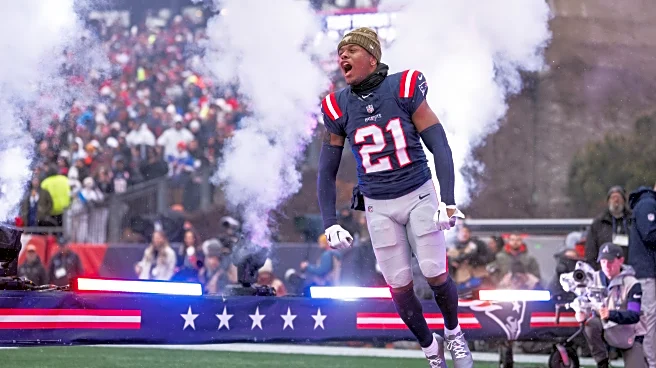A late, garbage-time touchdown saved the Steelers-Chargers final score from looking like the blowout loss it actually was. Ultimately, the Steelers fell 25-10 on the road on Sunday Night Football, moving to 1-3 in the team’s last four games.
As always, there are plenty of takeaways to be had.
1. You never know which Steelers team you’ll get from week to week
Part of my job — and a part I generally enjoy — is getting to pick the Steelers game each week.
This year, it has been a near-impossible exercise.
Are the Steelers good? Bad? The average is somewhere in between,
but the team prefers to wildly fluctuate between the extremes. Pittsburgh won, and largely dominated, the AFC top-seed Colts last week before falling apart the next against a good, but hardly unbeatable Chargers squad.
The Pittsburgh offense and defense can’t seem to have good days at the same time, either. Against the Justin Fields-led Jets in Week 1, the Steelers nearly spoiled a 34-point game by giving up 32. And against the Chargers, the defense largely held up its end of the deal against one of the NFL’s most elite quarterbacks, but the offense responded with nine sub-five-play drives.
Is it a matchup-based issue? In some ways, sure. But the Steelers bottled up an MVP candidate in Jonathan Taylor last week on defense and consistently moved the ball on offense against a top-ranked Browns defense in Week 6. They can deliver against good units.
There’s just no way to predict this Steelers team from week to week. Every take is immediately disproven in the following game. If one thing is consistent, it’s the inconsistency.
Mike Tomlin’s Steelers teams have teetered frustratingly in this territory for the last few seasons, and this latest two-game stretch has been among the most glaring examples yet.
This isn’t the level of consistency that should come from a professional-level team. Instead, it looks like it’ll be another season of unexpected highs and equally brutal lows.
2. Aaron Rodgers played his worst game of the season — by far
Steelers quarterback Aaron Rodgers is far from the only player who deserves blame for the game’s disappointing result, but there’s no doubt the veteran passer’s performance was the foundation of the loss.
Rodgers has been playing NFL football since 2005, mind you, and Sunday’s performance was right up there with the worst games he’s ever played.
Rodgers completed just 16 of his 31 attempts for 161 yards, one late touchdown, and two interceptions. The most representative stat line for his night, however, were his numbers under pressure: no completions, three sacks, and one safety.
All the negative aspects of Rodgers’ generally good season up to this point were magnified against the LA defense. Rodgers’ pass protection was far from spotless, but he wilted under pressure, missing reads, air-balling throws, and looking lost and skittish in the pocket.
At 41 years old, it’s hard to fault Rodgers for being contact-averse at this point in his career, but it’s still a notable flaw of the Steelers offense. Perhaps the most obvious example was Rodgers sailing an easy pass to Kenneth Gainwell on a third down because he spun in his throwing motion to avoid taking a hit head-on.
Again, it’s easy to sit here and type that Rodgers should just hang in the pocket in those situations. But when you talk about the distinctions between prime Rodgers and the player he is now, it’s the little things such as that which make a difference.
Rodgers also made some puzzling decisions, from once again prioritizing a check down on a third and long to throwing a double-covered fade to wide receiver D.K. Metcalf on a must-have fourth down. Not desperate heaves, but first-read decisions.
Sunday’s game was also a primer on why the Pittsburgh passing offense has been largely a dink-and-dunk operation this season. Rodgers still has plenty of arm left — his Hail Mary against the Bengals proved that — but his deep accuracy has taken a hit.
Within 10 yards, Rodgers was squeezing in tight-window throws and making plays. Beyond that distance, he was scattershot even on wide-open targets.
Don’t punt on Rodgers’ season yet — it’s the first truly poor game in a Steelers uniform he’s had. But after watching Russell Wilson fall apart late in 2024, there’s reason for concern watching another aging quarterback start to regress around the halfway mark of the season.
3. When it rains, it pours
The Steelers were down 15-3 midway through the third quarter. At that point, it felt like the game was over, but it wasn’t truly insurmountable until later in the fourth, when Pittsburgh turned the ball over on downs in the Los Angeles red zone and the Chargers responded with a 90-yard touchdown drive.
Then, still with around 10 minutes left in the game, Pittsburgh got a chance to respond down three scores. Instead, on the second play of the drive, a Rodgers pass bounced off wide receiver Calvin Austin III’s hands for an easy Chargers interception.
To its credit, the Pittsburgh defense held, but the good times didn’t last long. On the ensuing punt, return man Ke’Shawn Williams muffed the ball right back, putting LA in position for its final score of the night: a 42-yard Cameron Dicker field goal.
Once the Steelers began to fall behind in a big way, it started a domino effect of mistakes.
If anything, on the road, in primetime, and down multiple scores, you would’ve hoped Pittsburgh found a way to regroup and claw back. Instead, any remaining life was sucked out of the team in a loss that slowly turned from ugly to miserable.
It’s one thing to lose a West Coast game to a good Chargers team this year. It’s entirely something else to lose like that. And that’s been a common refrain in Pittsburgh’s losses this season.
4. The defense was better than you think
Pittsburgh’s Sunday loss fell largely on the offense and Rodgers. On defense, the team wasn’t dominant, but it was far from the problem.
In the trenches, the Steelers had a clear advantage over a banged-up LA offensive line, and it showed. For much of the game, Chargers quarterback Justin Herbert was just getting passes off before being crushed by black and gold defenders. T.J Watt and Nick Herbig logged a sack apiece while Alex Highsmith notched two. The team totaled five altogether with nine quarterback hits.
Although one aforementioned Chargers drive went 90 yards, both LA touchdowns came directly off of momentum-changing turnovers. And Pittsburgh lost the time of possession battle in a big way: 22:25 compared to LA’s 37:35.
The game felt very reminiscent of the Steelers teams of recent years, where good defenses were slowly worn out over the course of 60 minutes as the Pittsburgh offense struggled to maintain possession.
Of course, there were some holes in the run defense with LA running back Kimani Vidal rushing for 95 yards with a. 3.8 average, and a late Ladd McConkey catch and run placed the Chargers WR1 over 100 yards. But overall, it was the sort of defensive performance that would’ve won the game for the Steelers had the Pittsburgh offense looked like an average one on Sunday night.
Pittsburgh’s defense forced the Chargers to change their offensive identity, too. The LA offense’s typically long time to throw turned into a career-low for Herbert’s release time: a mere 2.21 seconds per Next Gen Stats. That would mark the third-quickest in a game this year.
Even then, the Steelers held Herbert to 220 passing yards and sacked him five times. After being killed by the quick game earlier this season, it was a step in the right direction.
But once again, the Steelers offense and defense just can’t seem to click at the same time.
5. Odds and ends
- The Chargers defense might not have a ton of big names, but it’s a quality unit, especially up front. Sunday’s game was a step backwards for the Steelers offensive line, with Broderick Jones, Spencer Anderson, and Troy Fautanu all having rough outings.
- Also, I doubt the Steelers’ plan to rotate left guards to make the jumbo package work helped, either. I’m glad that team found a way to keep the six-O-line personnel grouping alive, but that didn’t seem like the best way to do so. The offensive line is like quarterback in terms of positions you don’t want to rotate much.
- Not that it made a difference in the Steelers’ three-score loss, but this no-call defensive pass interference against D.K. Metcalf was hilariously egregious, especially considering the TV rules analyst tried to find a way to justify it after the fact.
- It was nice to see Roman Wilson score a late touchdown — even if it didn’t matter — after what happened last week. Per PFF, Wilson saw the third-most snaps of a Steelers wide receiver with 18 against the Chargers.
- There was a minor tiff between Steelers and Chargers fans online ahead of the game as to whether Chris Boswell or Cameron Dicker was the better kicker. Watching each suffer an uncharacteristic miss on Sunday was an ironic way to end the debate.
- Speaking of which, the acoustics of an in-dome doink were immaculate.
- I don’t have a stat to back this up yet, but it felt like every time the Steelers showed pressure in the A-gap, Herbert was able to create an easy chunk play hitting a receiver over the middle of the field. That’s the first place quarterbacks look when middle linebackers are mugging the line of scrimmage — Pittsburgh really needs to implement a counter.
- Reserve cornerback James Pierre filled in admirably following Darius Slay’s injury, recording two passes defensed and adding the most memorable tackle of the day. He wasn’t picked on despite being a backup and continues to stack good days on defense. Plus, he has the ideal body type for a Pittsburgh cornerback. I’ll continue to hint at it: Do the Steelers have something here? Pierre keeps showing that he deserves more playing time.
- As solid as the Pittsburgh defense was Sunday night, its star player was the Chargers’ hilarious number of dropped passes.
- Jonnu Smith is a good athlete at tight end and his contributions to the team are a little underrated at this point despite his struggles as a blocker. However, Pat Freiermuth continues to do more with his targets, and he’s a better blocker as well. There’s an argument he should be cutting more into Smith’s playing time.
- Keeanu Benton continues to improve after a rough start to his 2025 season. He now has 4.5 sacks in 2025 after recording one each in his first two NFL seasons.
- Cornerback Brandin Echols was picked on by Justin Herbert in Sunday’s game; he’s filled in admirably this season but it’s obvious he fits better on the boundary than in the slot. That has been the biggest negative repercussion of Jalen Ramsey’s move to safety.
- Jaylen Warren continues to be the Steelers’ most consistent playmaker on offense. He averaged five yards per carry against a talented LA defensive front and added 21 more yards as a receiver — plus a jaw-dropping hurdle. His offseason extension is already looking like a smart move by the Pittsburgh front office.
- Despite the team’s lack of fourth-quarter fight, the Steelers never benched their starters despite being down 22 points with four minutes left in the game. Call it misplaced pride, but it wasn’t the right move to keep a clearly-aging Aaron Rodgers out on the field for unnecessary playing time late.
- My BTSC colleague Mike Nicastro might be onto something here:
The Steelers have a week to prepare for a rematch with the team that started Pittsburgh’s 1-3 streak: the Cincinnati Bengals. The two teams will kick off in Pittsburgh on Nov. 16 at 1 p.m. EST.
What are your takeaways from Steelers vs. Chargers? Agree/disagree with the ones above? Join the Behind the Steel Curtain community and let us know in the comments!
